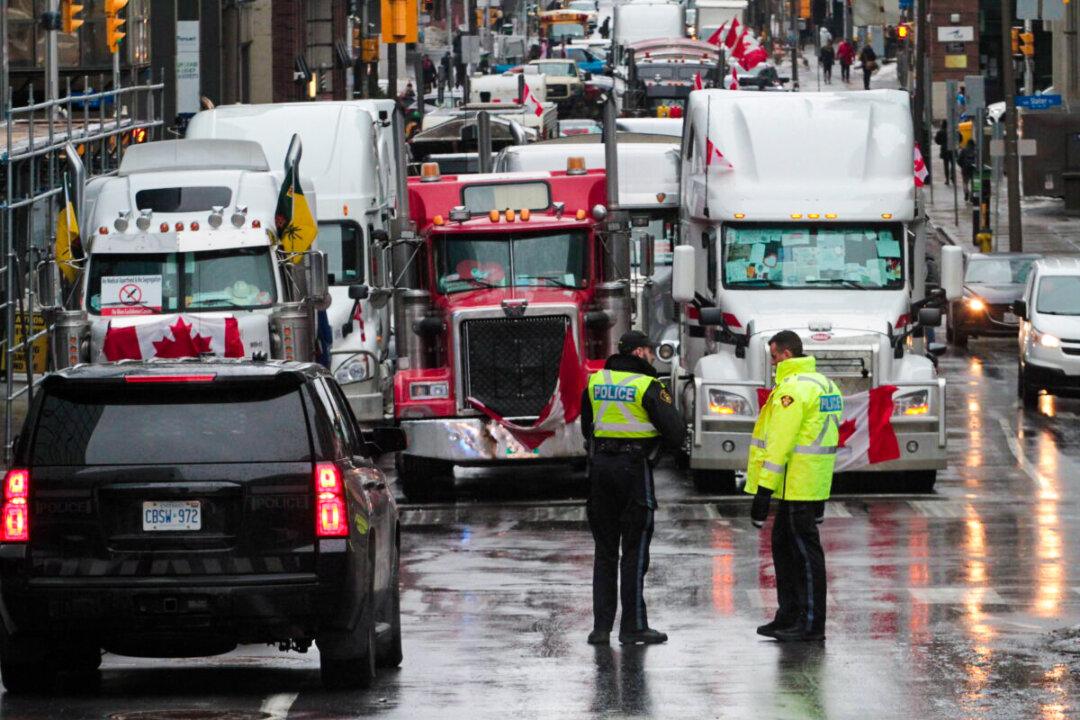Deputy Prime Minister Chrystia Freeland says the Emergencies Acts gives powers not only to the feds but also to municipalities and provinces, after Ottawa’s mayor said two days earlier said that he wanted the vehicles towed during police operations against protesters to be sold to cover the city’s costs incurred by the protests of the past three weeks.
“I talked about federal powers. There are also powers that lie with the municipalities and provinces,” Freeland said in response to a reporter’s question at a Feb. 21 press conference held by Prime Minister Justin Trudeau and several cabinet ministers.





